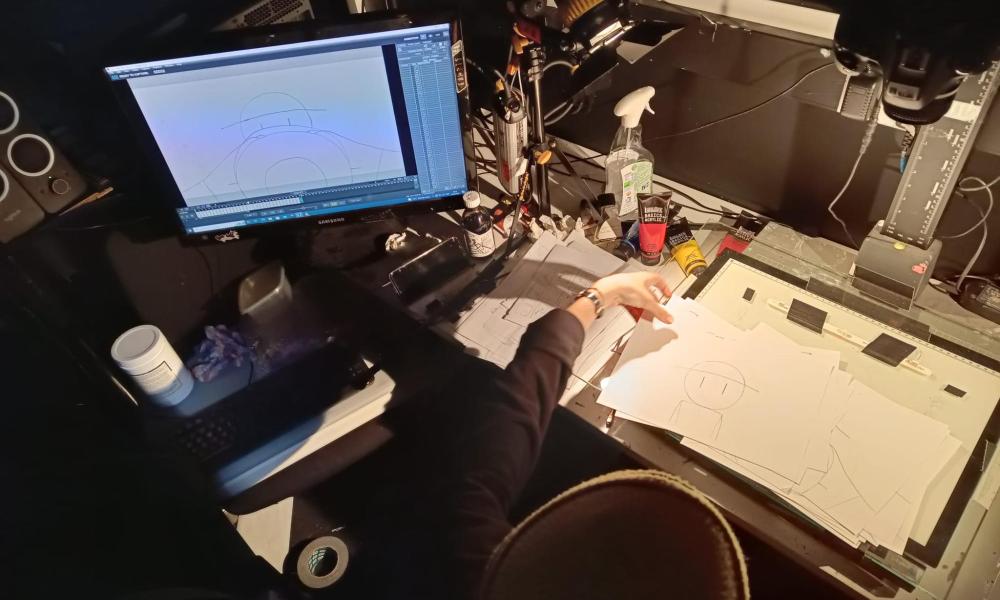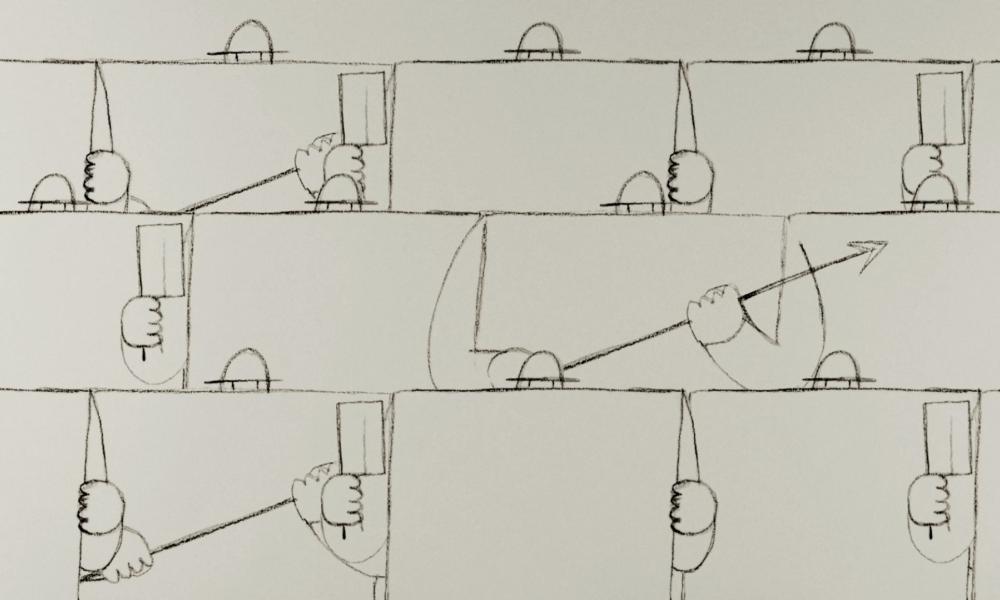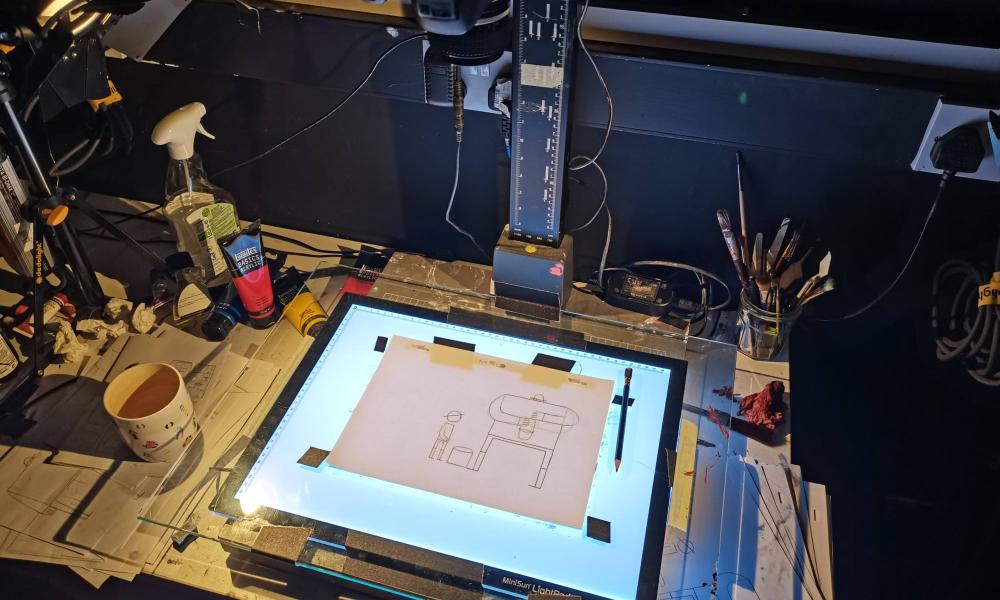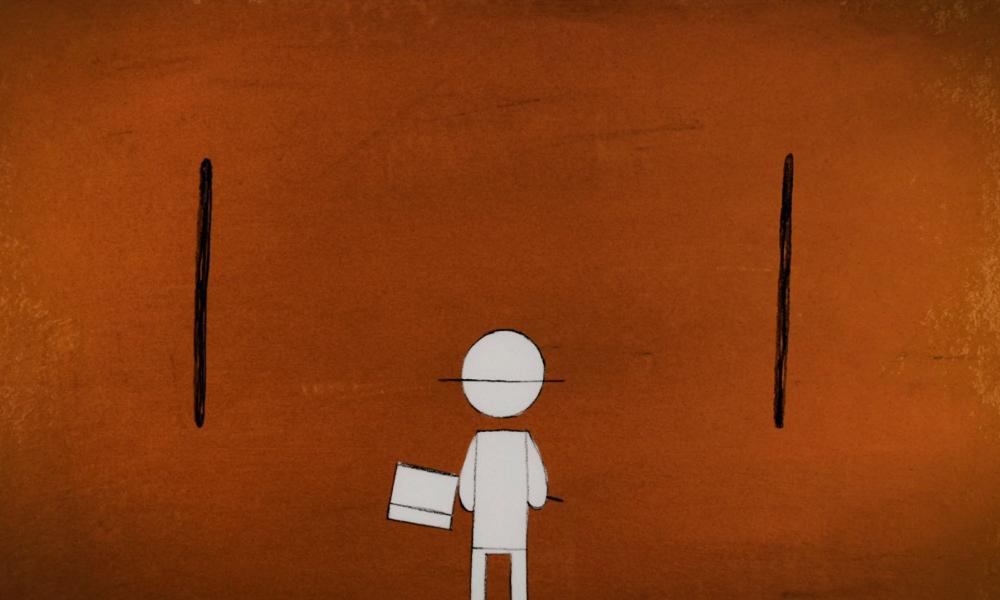NFTS BAFTA Nominee Spotlight 2024: Crab Day
It’s BAFTA weekend and The National Film and Television School (NFTS) is incredibly excited as alongside nominations for stand-out graduates including Molly Manning Walker (How To Have Sex), Shirley O’Connor (Earth Mama), Tarn Willers (The Zone of Interest) and Nathan Bryon (Rye Lane), we also have two graduation films, fiction Jellyfish and Lobster and animation Crab Day, nominated in the short film categories!
To celebrate this incredible achievement, we caught up with Ross Stringer, the director of Crab Day to dive into the journey of making this exceptional animation with a team of students at the NFTS.
Made during Ross’ time at the School, Crab Day tells the story of a young boy faced with an annual fishing ritual in which he must kill a crab to become a man. The boy’s choices that follow highlight a strained relationship between father and son.
Crab Day is a simple but incredibly effective animation, what are the key themes that make the film stand out?
I think people see themselves in a story that’s about figuring out where you fit within your community and environment. Everyone goes through this process in one way or another. For me, it was about expressing my own definition of what it means to ‘be a man’. Everyone is affected by gender stereotypes whether or not we fit within them. For some people, it’s about sexuality or just hiding a part of oneself. That’s all the crab is, an extension of the boy that becomes harder to hide the more it grows.
Filmmaking is never a straightforward process, what unexpected challenges did your team face during the process and how did this shape the final film?
One of the biggest challenges was figuring out the look of the film. We mostly had it from the beginning, but there’s an overwhelming temptation to try every technique until you find the right one (at least in my eyes). The film went from hand-drawn, to stop motion, to CG, to fully painted, and more!
Eventually, I came to my senses and realised that the core idea of the film was inspired by primitive and naïve art, and this was how I began development in the first place. It made sense because it was an extremely effective way of capturing the childlike perspective of our main protagonist. This meant that we ran quite late on our schedule and some things didn’t get finished, which led to the next biggest challenge - letting go of the little mistakes. Knowing when to stop is important. My advice to my future self would be to keep things simple and enjoy the process.
With only two main characters and no dialogue (besides the occasional manly grunt!), how did you develop the story to effectively convey their thoughts and feelings and the theme of masculinity?
I think that there being no dialogue contributes greatly to the theme of masculine stereotypes and conveys the idea that these men don’t possess the vocabulary to talk about their emotions. It’s part of the reason that we hide their faces too - the men were loosely based on crabs, as me and my writer saw them as a sort of metaphor for the hard-shelled man with a soft inside.
Our sound designers and composer really sculpted the audio language of the film. The characters’ blinking was a sort of communication - when the boy and crab exchange blinks, it creates a connection. Also, the music did a great job of conveying the boy’s internal thoughts, like at the end when he’s pressured into killing the giant crab, the sound of the men chanting takes a backseat while score comes through. It’s the same melody we hear earlier when the characters had a tender moment, so this tells us he might be thinking about this at that moment. So, you don’t really need dialogue to tell the story, sound is just as important, if not more.
With such a simple film, all elements must work hard together to tell the story, what were the most significant collaborations within your team that you feel contributed to making this film BAFTA-worthy?
There’s a standard of film that is impossible to make on your own with limited time, everyone’s contribution was incredibly valuable to the film. I think you end up with a core team who really get the project. My editor, Donya Maguire, was so good at understanding what the film needed when I’d become blind to it, she definitely propped me up when I needed it. My writer and producer, Aleks Sykulak and Bart Stanislawek, were always in the edits and writing room with me. Matteo Tronchin, my composer wrote the most amazing music, and, when I asked, rerecorded it in a different genre in the last week or so of production. I will always thank him for that (sorry Matteo)! We had sound designers, Jean-Marc Ek and Siim Skepast, jump in last minute when Simon Panayi was working on another film. I could go on, there’s a lot to be grateful for there. My job was just to make sure the film said what we wanted it to, how it got there was up to the whole team.
In what ways did your training and experiences at the NFTS influence your creative choices? Can you pinpoint any key lessons from your time at the School that proved invaluable in bringing your team's vision to the screen?
The National Film and Television School was great for learning how to work as a team. The entirety of our first year was dedicated to learning how to work with all the film team roles, with each project focused on working with a different department. This was incredibly valuable and an effective way of building up confidence as a director. I think you really bond with your peers and team because they’re learning everything along with you. Some of the most important lessons for me were learned from other students. I also really cherished the various approaches to idea generation that each project presents you with. I didn’t get along with every method but I felt like I had built up a significant toolbox for creative research.
What would a BAFTA win mean to you and the Crab Day team?
Hopefully lots of open doors to opportunities! I imagine it as a big stamp on your work that says ‘probably worth funding’. Although I think even just the nomination gets you that far, so really, we’ve already won.
For aspiring filmmakers considering a path in filmmaking or planning to study at the NFTS, what advice would you offer based on your own journey and experiences? Are there lessons learned or perspectives gained that you believe could be particularly beneficial for those about to embark on a similar creative path?
I would say above all, make sure your work has heart and don’t be afraid to pour yourself into it. Sure, it’s embarrassing sometimes if you see yourself in your work, but you get used to it, and people are more likely to resonate with it. I don’t think Crab Day gets by on technical proficiency, it’s definitely to do with how we lay out the story, and where it came from. Also, keep it simple or use only the most necessary elements to present your narrative/idea. I went through so much stress trying to make it the most amazing stop motion/painted/CG animation hybrid, only to go back to the simple pencil-on-paper style. The school has all of these amazing facilities, but you don’t have to use all of them. Some of the best films I’ve seen are made at home in a bedroom, or sometimes even a bathroom!
Thanks Ross!
- NFTS Graduate Crew
Director/Animator Ross Stringer
Producer Bartosz Stanislawek
Screenwriter Aleksandra Sykulak
Cinematographer Tom Simington
Production Designer Olivia Clarke
Production Manager Chloe O'Donoghue
Editor Donya Maguire
Sound Designer/Dubbing Mixer Simon Panayi
Sound Designers Jean-Marc Ek and Siim Skepast
Composer Matteo Tronchin
Colourist/Online Editor Aiden Tobin
The National Film and Television School couldn’t be prouder of the Crab Day team and the beautiful film they created together. The NFTS is passionate about creative and strong storytelling and this animation is a prime example of how that can be achieved simply but effectively. We’ll be glued to our screens as the 77th EE BAFTA Film Awards take place on Sunday 18 February, hosted by David Tennant.
Find out more about the course Ross studied here: nfts.co.uk/directing-animation





